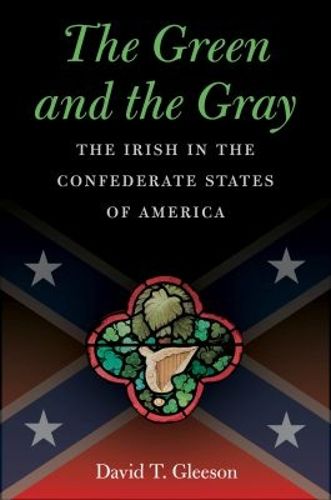Readings Newsletter
Become a Readings Member to make your shopping experience even easier.
Sign in or sign up for free!
You’re not far away from qualifying for FREE standard shipping within Australia
You’ve qualified for FREE standard shipping within Australia
The cart is loading…






Why did many Irish Americans, who did not have a direct connection to slavery, choose to fight for the Confederacy? This perplexing question is at the heart of David T. Gleeson’s sweeping analysis of the Irish in the Confederate States of America. Taking a broad view of the subject, Gleeson considers the role of Irish southerners in the debates over secession and the formation of the Confederacy, their experiences as soldiers, the effects of Confederate defeat for them and their emerging ethnic identity, and their role in the rise of Lost Cause ideology.
Focusing on the experience of Irish southerners in the years leading up to and following the Civil War, as well as on the Irish in the Confederate army and on the southern home front, Gleeson argues that the conflict and its aftermath were crucial to the integration of Irish Americans into the South. Throughout the book, Gleeson draws comparisons to the Irish on the Union side and to southern natives, expanding his analysis to engage the growing literature on Irish and American identity in the nineteenth-century United States.
$9.00 standard shipping within Australia
FREE standard shipping within Australia for orders over $100.00
Express & International shipping calculated at checkout
Why did many Irish Americans, who did not have a direct connection to slavery, choose to fight for the Confederacy? This perplexing question is at the heart of David T. Gleeson’s sweeping analysis of the Irish in the Confederate States of America. Taking a broad view of the subject, Gleeson considers the role of Irish southerners in the debates over secession and the formation of the Confederacy, their experiences as soldiers, the effects of Confederate defeat for them and their emerging ethnic identity, and their role in the rise of Lost Cause ideology.
Focusing on the experience of Irish southerners in the years leading up to and following the Civil War, as well as on the Irish in the Confederate army and on the southern home front, Gleeson argues that the conflict and its aftermath were crucial to the integration of Irish Americans into the South. Throughout the book, Gleeson draws comparisons to the Irish on the Union side and to southern natives, expanding his analysis to engage the growing literature on Irish and American identity in the nineteenth-century United States.